IRS tax fairness changes for business owners
The Internal Revenue Service (IRS) is making significant changes in its enforcement efforts to restore fairness to the tax system. With the support of funding from the Inflation Reduction Act, the IRS is shifting its focus towards high-income earners, partnerships, large corporations, and promoters who have been abusing the nation’s tax laws. As a business owner, it’s essential to understand these changes and their potential impact on your tax compliance.

The Key Changes
1. Increased Scrutiny on High-Income Earners
The IRS will pay more attention to individuals with total positive income above $1 million and tax debts exceeding $250,000. This initiative aims to collect taxes owed by high-income earners who may have been avoiding their tax obligations.
2. Advanced Technology and Artificial Intelligence (AI)
The IRS will leverage improved technology and AI to identify tax cheating and emerging compliance threats more effectively. This means enhanced tools to detect sophisticated tax evasion schemes.
3. Fairness Safeguards for Lower-Income Taxpayers:
Audit rates will not increase for individuals earning less than $400,000 per year. Additionally, the IRS plans to introduce new measures to protect those claiming the Earned Income Tax Credit (EITC), designed to assist workers with modest incomes.
4. Preventing Unscrupulous Tax Preparers:
The IRS will take steps to ensure that tax preparers do not exploit individuals claiming important tax credits like the EITC.
Why These Changes?
The IRS Commissioner, Danny Werfel, emphasizes the need to hold high-income filers accountable for paying their fair share of taxes. Over the past decade, audit rates for wealthy individuals have reached historically low levels, primarily due to underfunding. The IRS aims to reverse this trend and ensure a fair tax system.

What Does It Mean for Business Owners?
While the IRS is primarily focusing on high-income individuals, partnerships, and large corporations, business owners should stay informed for several reasons:
1. Partnership Compliance: The IRS is expanding its focus on large partnerships. If your business is structured as a partnership, especially a large one, you may face increased scrutiny.
2. Digital Assets: If your business deals with digital assets, be prepared for the IRS’s continued efforts to ensure compliance in this area. Failure to report digital assets accurately can lead to penalties.
3. Foreign Bank Accounts: If your business has foreign financial accounts, make sure you comply with FBAR reporting requirements. The IRS is planning to audit potential non-filers with significant account balances.
4. Labor Brokers: If your business uses labor brokers, ensure that you are not involved in any schemes that could lead to tax evasion. Compliance in this area will be closely monitored.
5. Identity Theft Awareness: Protect your business and personal tax data from identity theft. The IRS is committed to raising awareness and preventing tax-related identity theft.
Stay Informed and Compliant
As a business owner, it’s crucial to stay informed about these changes and ensure your tax compliance. While the IRS’s focus may primarily be on high-income individuals and specific sectors, it’s always wise to maintain accurate financial records and adhere to tax regulations. Compliance is essential to avoid potential audits, penalties, and legal complications.
In conclusion, the IRS’s efforts to restore fairness to the tax system are aimed at ensuring everyone pays their fair share of taxes. Business owners should be aware of these changes and take appropriate steps to comply with tax laws and regulations. By staying informed and maintaining good financial practices, you can protect your business and personal finances.
If you’d like to discuss a strategy for your small business and help you on your tax, Book your consultation with us today!


